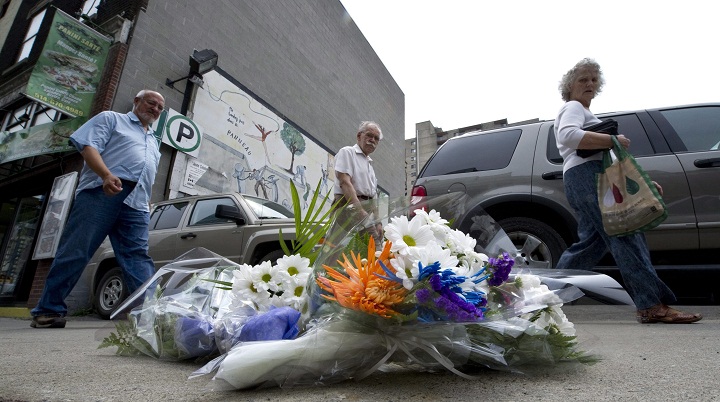QUEBEC – Quebec’s coroner’s office has released its findings into its investigation of the Montreal police shooting deaths of Mario Hamel and Patrick Limoges, with a damning report on the province’s mental health system and strong recommendations for police on firearm use.

The two were killed during in June 2011, when Montreal police officers shot 40-year-old Mario Hamel, a homeless man with a history of mental illness, after responding to a call.
Hamel was armed with a knife and was tossing garbage in the street when the four officers arrived at the scene.
After ordering him to drop his weapon, officers used cayenne pepper spray – to no avail. It was at this point that they opened fire.
Their gunfire also struck 36-year-old Patrick Limoges, an innocent passerby who happened to be walking by on his way to work at a nearby hospital.
The incident caught the nation’s attention, triggered an angry anti-police march and prompted calls for procedural changes at Quebec’s police forces.
In May this year, it was announced that no charges would be laid against officers involved in the shootings.
The coroner’s report, prepared by Dr. Jean Brochu, offers a damning analysis of the consequences of the deinstitutionalization of Quebec’s psych wards.
“Since 1962, more than 16,700 beds have been eradicated in Quebec psychiatric institutions, and the resources in place for those in need of psychiatric care outside hospitals have been inadequate,” the report said.
As a result, “these people are too often in the streets, in emergency rooms, in the courts, in detention centres, or worse, in front of police service revolvers.”
Brochu recommends that more support is offered to those with mental health issues, including stable housing for the homeless.
The At Home/Chez Soi project was cited as a successful example of care for homeless people with mental health issues.
This was a program launched in Montreal in November 2009 with funding from the Mental Health Commission of Canada, which according to the coroner’s report, has shown that adequate services for people with serious mental health problems can significantly improve their the social and mental health, while reducing hospitalization and incarceration costs.
Brochu also had several recommendations for the police:
- more rigorous firearms training, including strengthening officers’ ability to react under stress
- decreased use of firearms in stressful situations
- better equip officers and patrol cars with stun guns and ensure strict usage policies (such as calling an ambulance after a Taser has been employed)



Comments